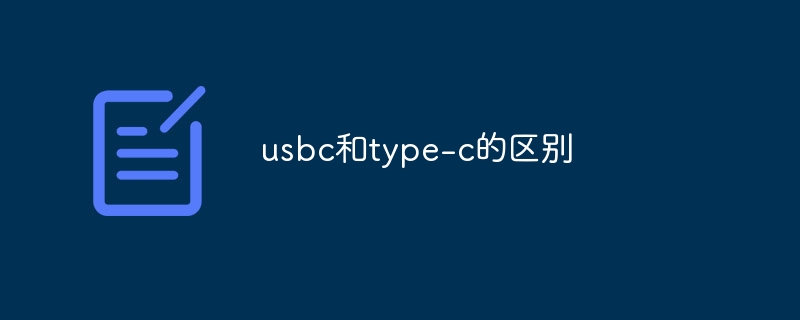Home >Common Problem >The difference between usbc and type-c
The difference between usbc and type-c
- 下次还敢Original
- 2024-03-20 13:30:301956browse
What is the difference between usbc and type-c? This is an issue that many netizens are concerned about. Next, the editor of PHP will introduce the difference between usbc and type-c. Interested netizens should follow the editor to take a look!

Introduction to the difference between usbc and type-c
1. Type-C is an electronic equipment interface standard, which has double-sided plug-in and high-speed Features such as data transmission and high-power charging.
2. USB-C is an interface based on the USB 3.1 standard. It inherits all the characteristics of USB and adds more functions and advantages.
3. The transmission rate of Type-C can reach 10 Gbps, while the transmission rate of USB-C is up to 10 Gbps, but the specific rate depends on the support of the device and cable.
4. Type-C supports higher transmission rates and can meet the needs of more devices, such as high-definition displays, high-speed storage devices, etc.
5. The Type-C interface supports the transmission of video, audio and data, and can also perform high-power charging. USB-C is mainly used for data transmission and charging.
6. Type-C supports multiple protocols, such as PD (Power Delivery), DP (DisplayPort), etc., while USB-C does not necessarily support these protocols.
7. The Type-C interface supports two-way communication, which can achieve more precise power management and improve charging efficiency. USB-C does not have this feature.
8. Type-C can achieve higher charging power and faster charging speed through PD protocol.
The above is the detailed content of The difference between usbc and type-c. For more information, please follow other related articles on the PHP Chinese website!

